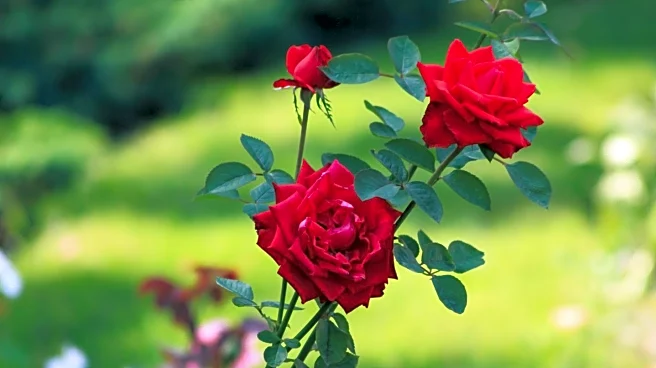What's Happening?
The Borneo Post article explores the multifaceted significance of roses, emphasizing their historical, cultural, and practical uses. Roses, known for their beauty and symbolism, have been cultivated for over 5,000 years, with origins traced back to China. The article details various rose species and their uses, including ornamental purposes, perfume-making, and culinary applications. Rose petals and rosehip are used in beverages, jams, and desserts, while rose extracts offer medicinal benefits such as antioxidant and anti-inflammatory properties. The article also provides insights into rose cultivation, highlighting the need for well-drained soil, regular watering, and pest control measures.
Why It's Important?
Roses hold a significant place in cultural and historical contexts, symbolizing love and beauty across civilizations. Their diverse applications in cosmetics, medicine, and cuisine underscore their economic and social value. The cultivation of roses, despite challenges, contributes to horticultural practices and local economies, particularly in regions where they are grown. Understanding rose care and pest management is crucial for gardeners and agricultural stakeholders, promoting sustainable practices and enhancing the aesthetic and economic benefits of rose cultivation.









